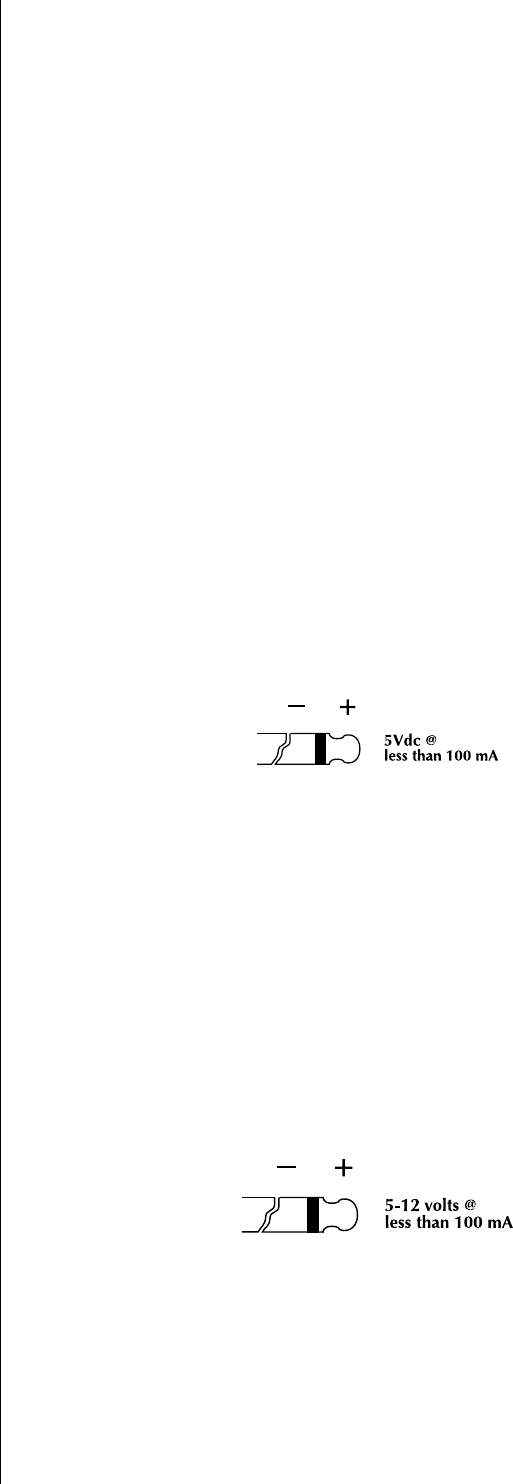
15
5 IR Input and Output
Your Classé amplifi er includes two
1
/8
th
-inch mini mono-jacks in order to
support the IR remote controls that are ubiquitous today. IR commands
exist for toggling the amplifi er between operate and standby, as well as
discrete command codes for either operate or standby. ese codes may be
used in “macros” for sophisticated remote control systems, facilitating the
control of the amplifi er in the larger context of a complete system.
Actually, this IR Input and Output description is a bit of a misnomer: the
input supplied to these plugs is electrical in nature, not IR. It is obtained by
using standard IR receivers, distribution amplifi ers, and emitters (available
from your dealer) to translate the remote’s fl ashes of infrared light into
corresponding pulses of electricity. e big advantages here include being
able to easily route the signals anywhere they might need to go, and the
reliability of a solid electrical connection.
Since an IR distribution system such as your dealer may design for you
usually must control many products, your amplifi er includes both an IR
input (for the control of this product) and an IR output (so as to pass
along the same signal to the next product). is allows you to “daisy chain”
your control wires from one product to the next.
e amplifi er is designed to respond to IR commands of 5 Volts DC, with
the tip of the mini mono-plugs defi ned to be “positive” relative to the
shank of the plug.
6 DC Trigger Input and Output
Many audio/video preamplifi ers can supply a DC control voltage to
associated equipment in order to induce desired behavior. Your Classé
amplifi er can take advantage of these capabilities in order to be switched
between operate and standby automatically, perhaps in concert with the
A/V preamp itself.
Two
1
/8
th
-inch mini mono-jacks provide this remote-controlled turn-on
(that is, toggling between operate and standby) of the amplifi er. ese jacks
provide a simple pass-through of the control voltage from one to the other,
allowing you to “daisy-chain” a series of amplifi ers quite easily.
e remote trigger will be operated by the presence of 5–12 Volts DC,
with tip polarity as shown below:


















